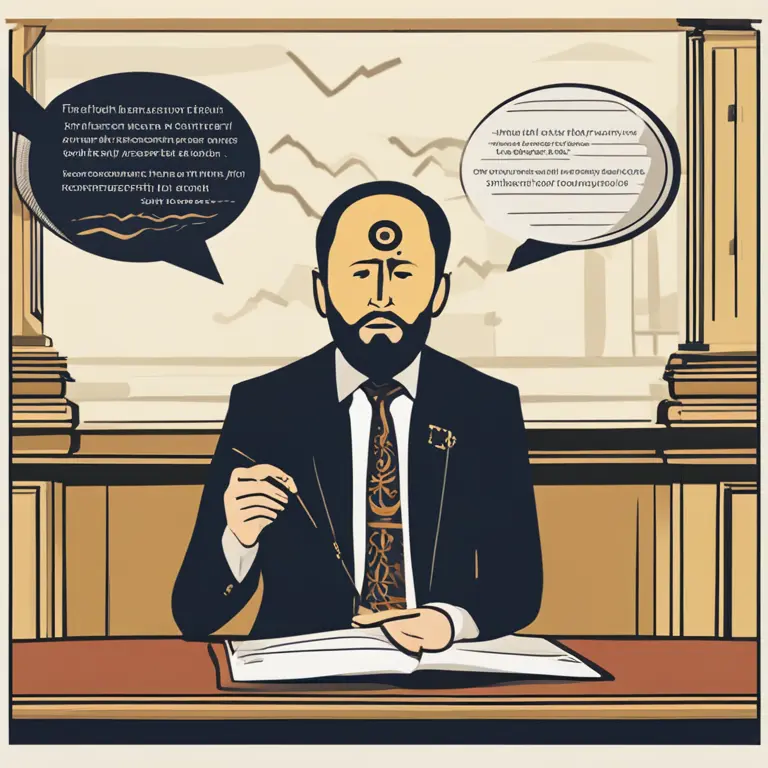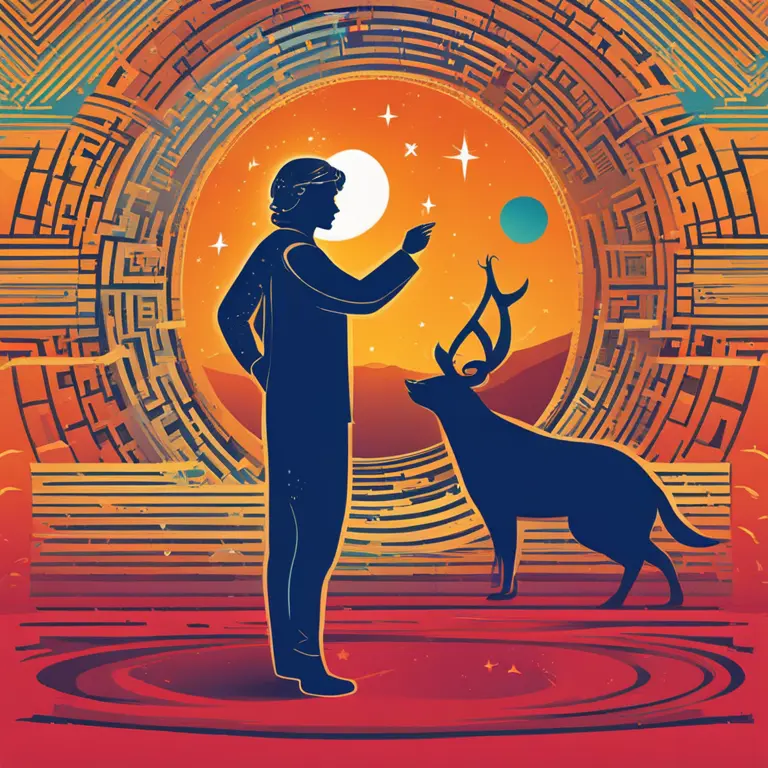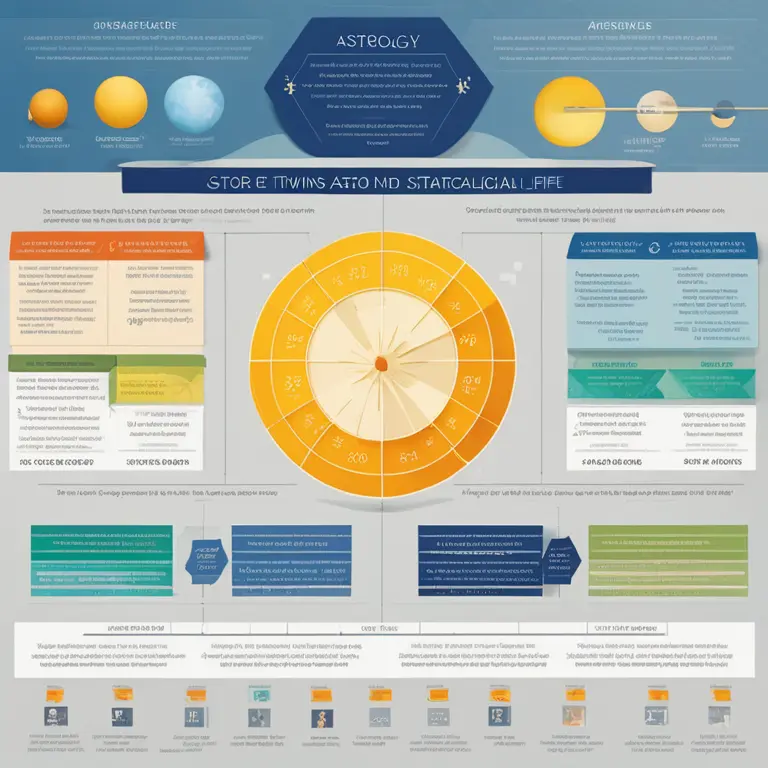
The Fallacies of Astrological Beliefs
Examine the reasons why astrology may not hold up to scientific scrutiny and why its practices are often considered nonsensical.
article by Priya Deshmukh
The Myth of Astral Influence
Despite astrology's ancient roots and its widespread popularity even in the modern digital age, the belief that celestial bodies govern our destinies is arguably without merit. To begin with, astrology inherently lacks empirical support, as numerous studies have failed to validate any consistent correlation between astrological predictions and real-world outcomes. Furthermore, given that the positions and arrangements of stars and planets have changed significantly since astrology's inception due to the precession of the equinoxes, the zodiac signs as we know them are no longer aligned with their original constellations. This fundamental shift undermines the basis of all astrological readings, which are predicated on outdated celestial data. To think that distant, non-sentient celestial bodies can influence personal traits or life events is inconsistent with what we know about physics and astronomy.

Confirmation Bias and Vagueness
Astrology's persistence can often be attributed to psychological effects such as confirmation bias, where individuals remember predictions that seem accurate while conveniently forgetting those that failed to materialize. Horoscopes are deliberately worded with a high degree of vagueness, which allows readers to ascribe personal meaning to general statements, believing they specifically apply to them. This Forer effect, or the tendency to interpret vague statements as highly accurate personal descriptions, is a common psychological phenomenon exploited by astrological readings. Additionally, the practice of presenting horoscopes in a positive, uplifting tone creates a self-fulfilling prophecy, as readers might unconsciously adjust their behavior in anticipation of a promised positive outcome, rather than the predictions themselves having any real causative power.

The Problem of Falsifiability
A cornerstone of the scientific method is falsifiability—the idea that for a theory to be scientific, it must be possible to conceive of evidence that disproves it. Astrology fails this critical test as its proponents often attribute inaccuracies to the imprecision of interpretation rather than the practice itself. Essentially, astrology is structured in a way that makes it immune to falsification. If a prediction is accurate, it is cited as proof of astrology’s validity; if not, the failure is attributed to the reader's own misinterpretation or some mysterious “cosmic influence” that somehow skewed the results.

The Statistical Quandary
Analyzing astrology from a statistical perspective yields no more credibility than a subjective one. Large-scale statistical studies, including those that compare the lives and personalities of individuals born around the same time, have found no evidence to support astrological assertions. Twin studies are particularly telling, as they often reveal divergent life paths and personalities despite the twins’ shared astrological signs. Statistics also falter when considering the astrological proposition that people born under certain signs have a predisposition to specific careers or life choices; populations do not exhibit the predicted skew toward particular professions or lifestyles based on their astrological signs.

The Commercialization of Belief
The thriving industry of astrology also warrants skepticism. The commercialization of horoscopes and astrological services is indicative of an enterprise that capitalizes on human susceptibility to narrative. With personal readings, customized charts, and the sale of lucky charms, astrology places itself not alongside rigorous scientific disciplines but rather within the realm of entertainment and commerce. The primary driver of astrology's marketability is not its verifiable achievements in mapping human fate but its appeal to emotion and the desire for reassurance in an unpredictable world.
The Evolution of Knowledge
Astrology as a belief system predates many scientific advancements and understandings that we regard as common knowledge today. With our ever-expanding universe of knowledge, continually clinging to astrology seems increasingly anachronistic. The lack of adaptability to new empirical evidence suggests a form of cognitive dissonance rather than a genuine discipline seeking truth. As humankind progresses with ever-more sophisticated tools to observe and explain the universe, the relevance of astrology wanes, replaced by a scientific worldview grounded in testable and amendable theories.
The Human Search for Meaning
Lastly, the human search for meaning in the cosmos is an innate and profound quest. However, casting astrology as a source of that meaning invariably conflicts with a rational understanding of our environment. Our longing for order and destiny in the chaos of existence is natural, but the way forward lies in embracing methodologies that withstand the rigorous demands of scientific inquiry rather than those that cater to our predilection for mystical answers.
Published: 2/5/2024
Modified: 2/5/2024
More predictions
Come back here soon to learn more about yourself and your future


The Zodiac Signs and their Influence
Delve into the intricate world of zodiac signs, where celestial alignments offer insights into personality traits, future forecasts, and life paths.


Calculate Your Sun, Moon, Rising Sign Chart
Discover the insights of your birth chart: learn about your sun, moon, and rising signs to illuminate your astrological makeup.


From Zodiac Signs to Tarot Cards: A Celestial Guide
Connect the cosmic dots between your zodiac sign and the tarot with this insightful guide into the esoteric relationship of astrology and tarot card readings.